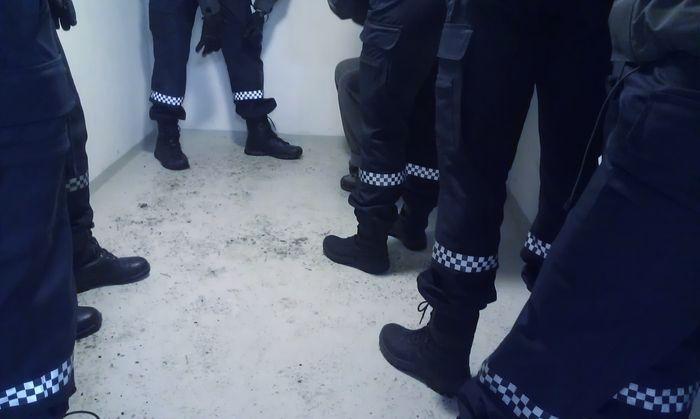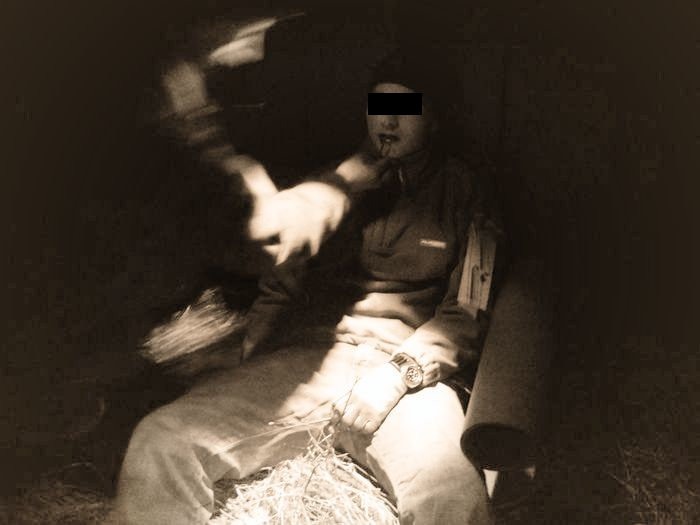Preparedness / psychology: personal wars and METT-TC
This article was originally written in Norwegian. You can read a machine translated version here:
Some thoughts about personal responsibility, as a health care professional as well as a private person in everyday life, helping others in violent situations, and an assessment tool along the way.
A statement by the Norwegian billionaire businessman Kjell Inge Røkke in a recent interview made me reflect on a challenge that many of us "operational" people have. The statement reached all the way in and I felt it hit hard: When asked what he really regrets in his life, he replied " do not fight other people's wars ".
Have you experienced spending a lot of energy on other people, solving other people's problems, taking up the fight against injustice, always with an outcome that only can serve others? You do it because you feel obligated to help, in the name of justice, because you have been brought up to do it, in order to make society safer, to make a difference for individuals, and always without personal gain. But in the end, you are the loser. Depending on the setting, the consequences can be great, they range from personal and financial losses, to mental or physical injuries, and prosecution or loss of life.
I do not think of the personal sacrifice as a result of a war effort in the military, or as part of a coordinated police force. Members of these groups face the same challenges. However, my focus in this artice is on the everyday heroes, private individuals, personal tragedies and emergency personnel who operate on the "edge" of mandate.
July 22, 2011 and the Utøya terrorist attack were a parade example in Norway that shows the challenge with this issue. After experience from previous incidents that have never been as violent and extensive before, the current procedure for ambulance personnel according to MOM (medical operative manual) was to wait in safety until the police provided security to be able to safely advance and treat patients. Every ambulance student gets drilled in "scene safety first": You must be able to return home after the job, and you must remain unharmed to help other people. As a result, on July 22nd, large numbers of ambulance personnel stood and waited at a good distance, while private individuals jumped in their motorboats and picked up young people (under fire) who had started swimming to safety from the island, including a number of injured youth. The discussion arose afterwards about the risk profile and what should be expected of operational health care personnel versus private individuals. I remember the situation well and believe me, it was not about "cowardice", but lack of instruction or rights. As a result, PLIVO was introduced. A system where all emergency units cooperate under "ongoing physical violence" (Pågående LIvstruende VOld). Implemented as a course concept, it will provide a tool especially for the fire service and ambulance in handling sharp assignments, and preferably until the police arrive at the scene of the accident.

Through course activities and teaching, I have had the opportunity to talk to many involved from all the emergency services, and reception of PLIVO is divided: While many agree that we need tools to deal with such incidents, others feel too weak, only armed with fire extinguishers, backboard and fire ax against a perpetrator without firearms. There is a demand for better police coverage in the country, instead of transferring police tasks to primarily the fire service. The operational assessment basis is also still lacking: PLIVO now gives a mandate to intervene and transfer responsibility, but the real experience is lacking.
Anecdote e show when such incidents news, it is to read about fire and health that disarms a perpetrator after stabbing on a bus, with the nearest police patrol an hour away. This was presented as a joy story. You can also read about ambulance personnel who killed a patient when he was to help the police overpower a physically active person. I do not want to politicize or criticize existing mechanisms, but much rather provide a tool in the decision. It is very possible that you, dear reader, do not in any way fall into the mentioned groups, but are a completely ordinary person who has had patient contact only through a first aid course. However, it is very possible that you too have ended up in a candy, but completely personal tragedy? I remember stories of neighbor quarrels where a family father with sole care for the children intervened, only to be stabbed and rushed, charitable events that ended in robbery, and self-justice after many years of abuse that led to the victim being brought to justice and convicted.

The US military uses a tool for decision making called METT-TC (FM 6-0 Mission Command, 2003). This stands for:
Mission
Enemy
Terrain and weather
Troops and support available
Time available
Civilian considerations
This means that a careful assessment will provide a much better understanding of why one performs an operation and minimizes the risk of falling, among other things, for the 5 Ps ( Proper Preparation Prevents Poor Performance ).
So let's plot these decision-making tools in groups for use in the military, as operational health professionals and for civilian use to understand the differences:
| The military | Operational health personnel (PLIVO) | Private citizen | |
| Mission | Seek out and destroy the enemy | Seek out and disable criminals | Avoid confrontation or break contact with criminals |
| Enemy | Larger group of warriors armed with automatic rifles and heavy weapons | Individuals or small groups armed with firearms or percussion weapons | Individuals or small groups armed with firearms or percussion weapons |
| Terrain and weather | Maximum range of firearms and heavy weapons | Public spaces, social places and private areas | Social places and private areas (home) |
| Troops and support | Large group of well-equipped and trained soldiers | Colleague, police officer armed with a firearm | Bystanders and family members |
| Time available | Troop leading procedures | Time from call to confrontation | Immediately |
| Civilian considerations | SOPs, Geneva Convention. Military courts allow benefit of doubt. | Norway's laws, civil courts that allow some benefit of doubt. | Norway's laws, civil courts, but little doubt comes in handy. Probable arrest. |
I think we can agree that as a private person, the prerequisites for success are the worst, and the risk of negative consequences is greatest. We shake our heads at boys in fights in the schoolyard, but men with a shred of alpha animal mentality are no better. The undersigned may admit that he has fallen for this, and not just once. In my opinion, society is completely dependent on people who stand up for justice, protect the weak and take responsibility. I sometimes wonder how many Gunnar Sønstebys today's society could have produced. Still, within reason, and legality!
Once again, I think that the financial world and an operational everyday life are quite close together. Kjell Inge's experience fits right in with everyone's challenges! It is after all a very personal, ethical question that you must answer for yourself: Above whom lies your greatest duty and fidelity, a stranger or your own family?
Check out my services for active listening, full obligation of confidentiality apply.
Back

All comments are moderated before being published. Your email will not be visible